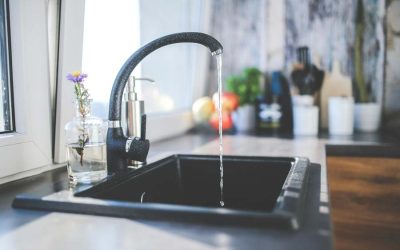I hope this finds you in good health and high spirits.
This week I want to discuss something that affects women but can also impact the men in their lives. After my father passed away last year, I came back to Australia and started to suffer some significant episodes of insomnia and anxiety, something I had suffered from in my 20’s. I quickly linked the timing to be around the time before my menstruation. Looking into it, I became aware of PMDD, Premenstrual dysphoric disorder.
PMDD isn’t your average ‘feeling a bit grouchy’ before your period. It has all the symptoms of PMS, along with severe irritability, depression, anxiety, and feeling overwhelmed or out of control during the week or two before your period starts. This can severely affect day-to-day life. Symptoms usually go away two to three days after your period begins, along with the typical signs of PMS.
Researchers are still looking into the cause of PMDD, but so far, it is generally accepted that hormone changes cause a drop in serotonin, which can cause moods to shift. Some holistic clinicians and doctors suspect that oestrogen levels being too high, versus progesterone levels being too low, can cause PMDD.
One good idea is to see a functional doctor, and get blood tests to see if oestrogen is a problem in your case. From there you can work on getting your oestrogen balanced. Oestrogen can show as elevated if you produce too little progesterone, if you’ve used or are using hormonal birth control, from exposure to xenoestrogens found in fragrances, solvents, plastics, parabens, pesticides, etc., and simply by approaching menopause.
What makes PMDD worse? Research has shown that PMDD may be linked to stressful and traumatic past events, such as emotional or physical abuse in some cases. Stress may also make your PMDD symptoms worse. It figures why it happened to me!
So what can be done to help you ease these symptoms
- Eliminate that extra oestrogen (if that’s shown up for you) – make sure your digestion and bowels are working correctly, this is where oestrogen is expelled.
- Meditation and yoga – may help to relieve stress and treat PMDD.
- Aromatherapy uses fragrant plant oils – to provide physical and psychological benefits, whether used in a diffuser or as a massage oil.
- Warm bath – to help relax the body and mind
- Exercise – my GP informed me that 45 minutes a day is more effective than SSRIs in treating anxiety and depression in most cases. Good in theory, but we actually have to do it!
- Sleep – sleeping between 7-9 hours of sleep every night, going to bed early, and rising early- will help regulate all those hormones.
- Diet – following our healthy eating plan of good quality meats, fish, veggies, fruits, nuts, seeds and some raw/organic full-fat dairy to help stabilise blood sugars.
- Acupuncture – A review of 10 randomised controlled trials found that acupuncture has the potential to improve many of the symptoms associated with PMS
- Seeing a psychotherapist to work on techniques to deal with the anxiety.
Supplements
- NAC is a precursor to the amino acid cysteine and helps increase levels of the antioxidant glutathione in the body. Research has explored the use of NAC for PMDD due to its potential effects on mood, inflammation, and neurotransmitter regulation.
- Magnesium helps convert tryptophan to serotonin and melatonin, along with lowering cortisol, all helping the feel good, sleep, and stress!
- Vitamin b6 has been shown to reduce pms symptoms and is essential for the manufacture of brain neurotransmitters, including GABA, dopamine, and serotonin.
- Calcium D-glucarate (CDG) – research has shown this can be as effective as taking medication in treating estrogen dominance.[11] CDG helps detox the liver by splitting off into glucaric acid, the active form. Glucaric acid binds to toxic substances and ushers them into the urinary tract and out. It helps excess oestrogen get ushered out of the body.
- Vitex agnus-castus – this works by lowering prolactin and creating a calming effect on the nervous system, vitex can relieve symptoms such as irritability, fluid retention, and breast pain. It has performed well in several clinical trials for PMS and PMDD. It can also help with perimenopausal mood symptoms.
- Omega 3 – Various clinical trials have shown the effectiveness of using omega-3 supplements for PMS. For example, in 2013, scientists found that taking 2,000 mg omega-3 capsules helped to address psychological symptoms of PMS, such as low mood, lack of concentration, anxiety, and depression. They also noted improvements in symptoms such as breast tenderness and headaches.
- RelaxWell – Including L-Tryptophan, the Precursor of the feelgood neurotransmitter serotonin, and sleep-inducing melatonin, helps promote feelings of calm, relaxation, and sleepiness. L-Theanine, Found naturally in green tea, is a well-known anti-anxiety nutrient, that helps balance mood. Vitamins B3 and B6, supports the normal functioning of the nervous system, and reduce tiredness and fatigue
It’s important to remember that every individual’s experience with PMDD is unique, and what works for one person may not work for another. Therefore, listening to your body, keeping a symptom journal, and collaborating closely with your healthcare provider to develop a personalised treatment plan is essential.
Managing PMDD naturally involves a multi-faceted approach that addresses the mind, body, and spirit. Embracing holistic treatments such as dietary adjustments, herbal remedies, exercise, mindfulness, adequate sleep, aromatherapy, and social support can contribute to improved emotional well-being and overall balance. By combining natural remedies with self-compassion and professional guidance, individuals can find relief and empowerment on their journey to managing PMDD and fostering a happier, healthier life.
References
https://jpc.tums.ac.ir/index.php/jpc/article/view/283
https://jpc.tums.ac.ir/index.php/jpc/article/view/283
https://daveasprey.com/natural-ways-treat-pms-pmdd/
Wishing you good health and happiness.
Warm regards,
Olivia Redfern




